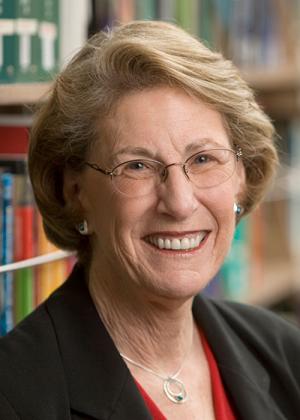Leslie Bernstein, Ph.D., is known for mentoring, empowering and supporting women scientists throughout her career. Dr. Bernstein is a member of the Department of Population Sciences at City of Hope, a cancer research and treatment organization near Los Angeles.
She collaborated with a former student, Jonine Bernstein, Ph.D., in the design, conduct and analysis of the largest study of genetic susceptibility and risk for second primary breast cancer in women already diagnosed with the disease. They worked over 20 years on the international, NIH-funded Women’s Environmental Cancer and Radiation Epidemiology (WECARE) Study.
In 1994, Dr. Bernstein published the first definitive study linking physical activity to breast cancer risk. She theorized that exercise could potentially reduce breast cancer risk in women; this was demonstrated in her NCI-funded case-control study and later confirmed by 60 studies worldwide, including three conducted by Dr. Bernstein.
She has led numerous studies focused on the menstrual cycle and hormones; a cohort study of high school girls showed that exercise activity influences ovarian hormone patterns and menstrual cycle length.
Dr. Bernstein and colleagues launched the California Teachers Study in 1995 where more than 133,000 women completed questionnaires about their health behaviors. She had long hypothesized that aspirin may reduce breast cancer risk. With the California Teachers Study, they found reduced risk of breast cancer among women who reported using low-dose aspirin at least three times per week.
Dr. Bernstein has received numerous awards, including: NCI’s Rosalind E. Franklin Award for women in science, the American Association for Cancer Research (AACR)-Prevent Cancer Foundation Award for Excellence in Cancer Prevention Research, and the AACR-American Cancer Society Award for Research Excellence in Cancer Epidemiology and Prevention. She was named a recipient of the American Cancer Society’s most prestigious award, the Medal of Honor in Cancer Control.
To learn more about her, read this Cancer profile.

